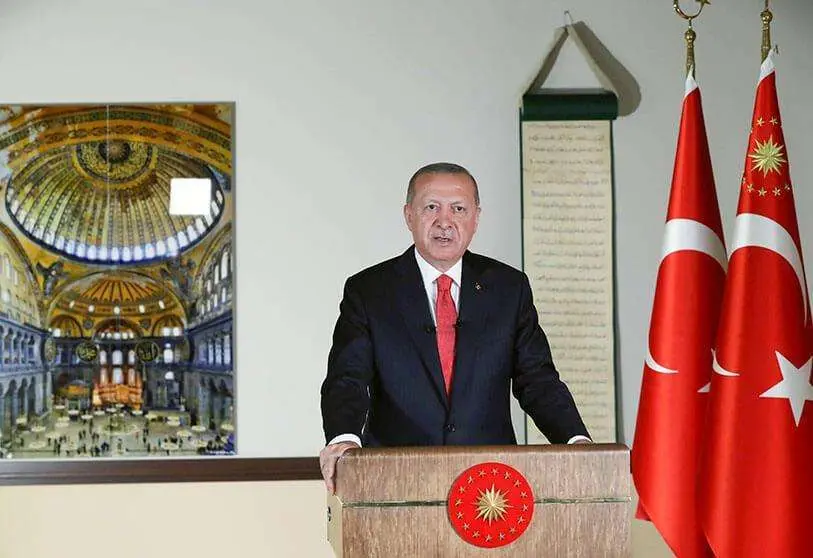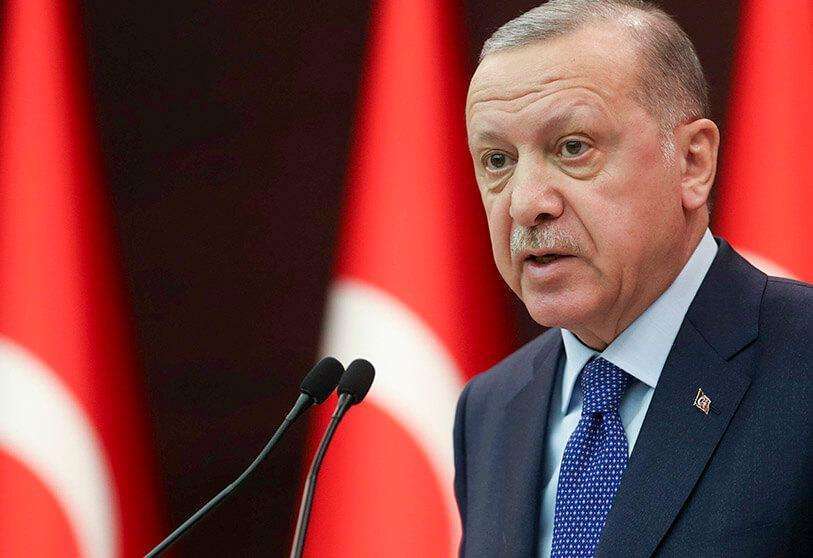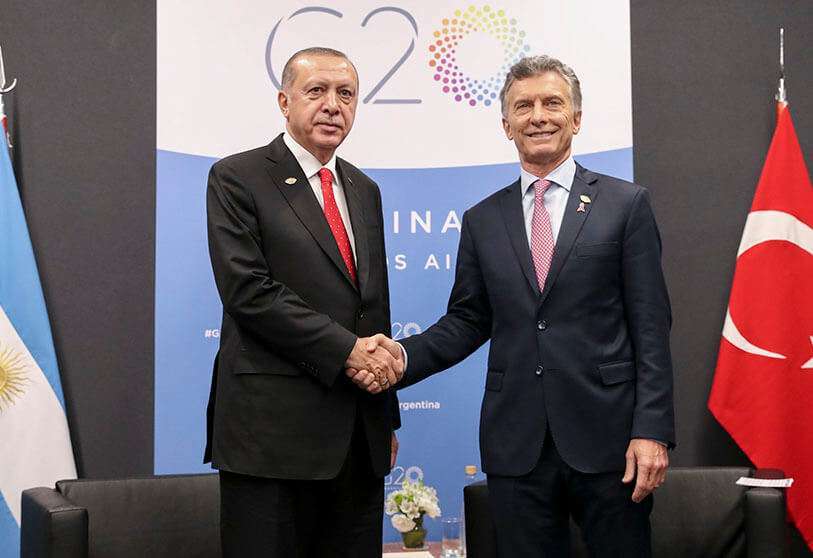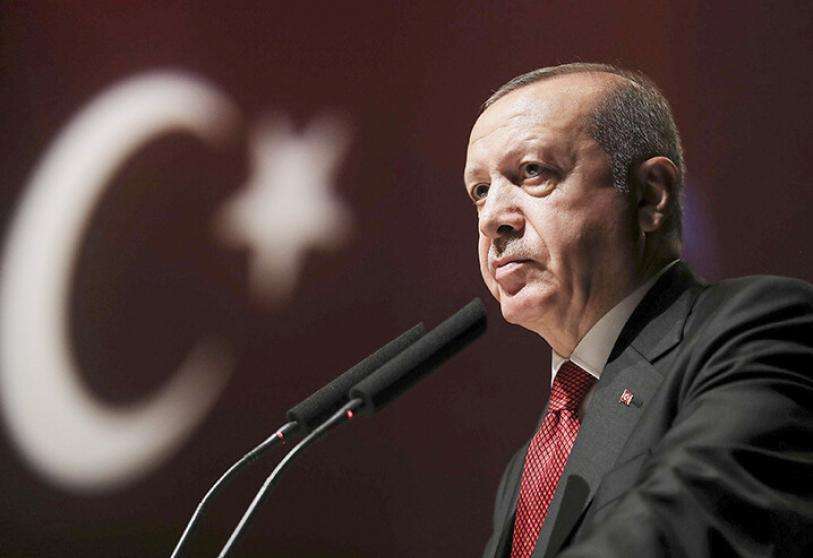Alternative Actors in Latam: Turkey

Turkey, which concerns us today, has first-rate entrepreneurs, with its demographic weight - 84M inhabitants and average age of 32 -, abundant links with its diaspora, and soft power around its entertainment industry, which is sweeping Latam in a similar way to Hallyu - the South Korean wave of k-pop and other cultural products.
The head of the Spanish government, Pedro Sánchez, visited Ankara for the 7th Turkish-Spanish Summit with President Recep Tayyip Erdoğan.
It was the announcement of the launch of BBVA's takeover bid for 100% of the capital of Garanti, Turkey's leading private bank and a subsidiary of the Spanish group. The big growth factor is the young customer. The operation aims to generate profits while taking advantage of the fall in the lira.
As allies they collaborate in NATO, whose next summit will be held in Spain in June. Spain's Navantia completed a small Turkish aircraft carrier this year with the aim of building a larger one. A submarine is in the pipeline. Drones deserve special mention: Turkish drones are both effective and low-cost.
It has gone from a trade balance of $7.7bn in 2010 to an all-time high of $14.725bn in 2019. Target: $20,000M. There are more than 600 Spanish companies established in Turkey.
Unlike other EU partners, in Spain both the government and the opposition support Turkey's - increasingly unlikely - accession to the EU as a state policy. Beyond this, Madrid puts the brakes on Paris supporting the PKK, an organisation considered a terrorist organisation in Ankara that the US now declares an ally in Syria. Spain was not part of the declaration on the Kavala case signed by some Western ambassadors in Ankara and for which the Council of Europe is launching disciplinary action against Turkey. These features of Spanish foreign policy lead to the term 'true friend' being applied to Spain.

There are parallels in recent history, such as having US bases since the 1950s because of their enormous geostrategic significance. Both were ruled by military coups or dictatorships for a time. And the struggle against the Kurdish nationalism of the PKK, the separatist terrorism of ETA.
Although both leaders avoided them, the differences exist. Just one example: the scourge of violence against women. An issue on which Erdoğan shows a "very sensitive" attitude based on the concept of the family. He withdrew his country from the Istanbul convention on the protection of women in the summer: Islamism criticised that "the agreement promoted homosexuality".
Sánchez, a self-proclaimed champion of women's rights, did not hesitate to cut off an RNE journalist for her uncomfortable questions to Erdoğan.
Madrid and Ankara's religious, linguistic and cultural spheres of influence do not overlap geographically. This facilitates a strategic partnership allowing the two to open up to each other's spheres of influence. Spain to the newly established Organisation of Turkic States. Turkey to the Latin American countries to which it attaches great importance.
As early as 1513 the Ottoman admiral and cartographer Piri Reis drew an enigmatic map showing what appear to be the coasts of America and Antarctica before they were explored. A national icon for Turkey, it remains the subject of debate as to whether it is the oldest map of the Americas.
The links date back to the second half of the 19th century. Between 1860 and the end of the Great War there were several waves of migration from the Ottoman Empire to Latam. Those migrants, mostly Arabs, were called "The Turks" as they came with Ottoman passports. After the war and the collapse of the Ottoman Empire, migration was massive. In 1926, Chile was the first country in the region to recognise the young Republic founded by Mustafa Kemal Atatürk. From the 1940s onwards, the number of embassies grew. Relations languished until the 1990s, when the first official visit by a Turkish head of state took place. Argentina, Brazil and Chile received Süleyman Demirel.

With the coming to power in 2003 of the social-conservative, Islamo-democratic Justice and Development Party (AKP), Turkey's foreign policy has been moving towards multilateralism beyond traditional allies.
Over the last 20 years, in line with this transformation, Turkey has been developing an active policy of openness. The "Action Plan for Latin America and the Caribbean" was implemented with the participation of ambassadors and representatives of the public and private sectors and came into force in 1998. The Plan was revised in 2006 and declared as the "Year of Latin America and the Caribbean" in Turkey.
Ankara has 16 embassies in Latin America and the Caribbean. Through them and through the Turkish Cooperation and Coordination Agency (TİKA), it positions itself as a humanitarian power with the support it has shown in various natural disasters and the current fight against the pandemic. In public diplomacy, Turkey's Directorate of Religious Affairs of Turkey (DIYANET) aims to provide greater support to Muslim communities in the region.
Ankara's diplomatic offensive strengthens political, economic and cultural ties and has taken Erdoğan to Cuba, Mexico and Colombia in 2015 and to Chile, Peru and Ecuador in 2016. In 2018 he was in Argentina for the G20 summit with a whirlwind visit to Paraguay.
Most of Turkey's imports are raw materials and natural resources: copper, fuels, minerals and oil (Brazil and Argentina also export machinery). Its exports are medium-tech manufactured goods: automotive parts and engines, iron and steel, heavy machinery and material for nuclear reactors, fruit and foodstuffs, textiles and synthetic fibres.
Brazil and Mexico are considered strategic partners. There has been a Free Trade Agreement with Chile since 2011. Negotiations for an FTA with Ecuador, Colombia, Mexico and Peru are "on track". Guatemala is interested in negotiating a Partial Scope Agreement (PSA). Another objective is to conclude FTAs with the Pacific Alliance, Caricom and Mercosur. Turkey has been an observer member of the OAS since 1998.

In the case of Venezuela, and as Maduro's visit in 2018 showed, the regime has found in Turkey a controversial support for the opening of its trade and economy. Good relations with Ankara are an oxygen valve for Caracas, and give Turkey a disproportionate role in the hemisphere.
Turkey's Defence Technology Trading and Engineering (STM) is showcasing its military naval platforms and tactical mini-unmanned aerial vehicle (UAV) systems at Expodefensa 2021 - one of the most important defence industry trade fairs in Latin America and the Caribbean - held this week in Bogota.
The recent plunge of the Turkish lira, falling more than 15 per cent against the dollar, came after Erdoğan defended an unorthodox economic policy described by economists as "foolish" and "irrational". He blamed it on "another foreign plot", comparing it to the suspicious 2016 coup attempt that failed to remove him from power. With the central bank's intervention in the foreign exchange market, the lira has appreciated by 10%, with one dollar exchanging for 12.4 lira.
The economy grew by 7.4% in the third quarter, according to data released this week by the Turkish Statistical Institute (TÜIK), confirming GDP growth, driven by domestic consumption and exports. Turkey was one of the few economies to grow last year, by 1.75 per cent.
However, the president is putting business before people in his efforts to emerge from the crisis. Rising inflation - 19.9 per cent, unofficially and in popular perception, more than double - is beginning to choke social sectors previously considered immune.
There is no risk of "direct contagion" for Latin America, but it is important to be vigilant. The current crisis is, with minor variations, a continuation of the one that began in 2018, accentuated by the political and economic actions of the Erdoğan regime. Increasingly authoritarian during his current presidency (since 2014), he has already sacked three presidents of the Central Bank and so far in 2021 has ordered a four-point cut in the interest rate (from 19 to 15% per annum). In the midst of the crisis, the finance minister resigns for rejecting Erdogan's monetary strategy and his continuous intervention in the work of the Central Bank. The fall of the lira provokes strong discontent among the military.
Foreign policy has overcome the obstacle of geographical distance by increasing cultural diplomacy and soft power. Turkey is one of the most representative cases. "Attract and not impose" is a priority principle in Latin America. All the more so if one takes into account the accumulation of negative references: the Gezi protests in 2013, persecution of women activists, repression of the Kurdish people, etc. Not to mention that the creative and cultural industries produce huge profits.
The Turkish Radio and Television Corporation (TRT) plays a central role in the mass broadcasting of TV dramas (dizi), films and music through channels and streaming platforms. Kanal D Drama, owned by Kanal D International Networks, was launched in 2018 as a result of a strategic alliance between Thema America and Kanal D International. It manages and distributes the Spanish-language signal in the US and Latin America and due to its resounding success, now also in Spain.

The Turkish government's intention is to improve the country's image by presenting it as a developed, modern, yet tradition-bound and democratic nation. Censorship is severe and not good, the actors admit, "but we have to comply".
Television has been a key platform to start generating a positive image. Turkish TV dramas have raised awareness of a non-Arab Muslim society and the country's rich history and culture. They have broken audience records in Argentina, Chile, Paraguay and Peru, displacing Colombia and Mexico as leaders in the sector.
Among the most successful dizi in Latin America are "The Thousand and One Nights", "The Sultan" and "What's Fatmagül's fault? A film or dizi involves the music industry, the fashion industry, the performing arts, software, advertising... Promoting the popular can lead to the establishment of cultural institutes in the medium term. One interest that is already present is the academic sector, in which the study scholarships offered by the Turkish government through Türkiye Burslari (YTB) stand out.
The cleric Fethullah Gülen, a former ally of Erdoğan's who now accuses him of fomenting the failed coup of 2016, is worth mentioning. The US continues to ignore the extradition request.
Gülenism or "Hizmet" (service) has millions of followers around the world. Likewise in Latin America. Gülenism's influence has spread through a network of prestigious private primary and secondary schools. The movement advocates a civil society, a free market, inter-religious dialogue and the value of work to be a good Muslim. Its ideology is compared to that of Opus Dei or Calvinism.
According to El Economista, Latam is about to return the visit to the Turks:
"The used car buying and selling company Kavak acquired the Turkish company in this branch Garaj Sepeti to start operating in the European country, with a view to the Asian market. With this acquisition, Kavak expands its borders outside Latin America, where it already operates in Mexico, Argentina, Brazil and is expected soon in Chile. Kavak became in September 2020 the first Mexican startup to reach unicorn status, with a valuation of more than $1,000M. Less than a year later...the company became the second most valuable startup in Latin America, after Brazilian neobank Nubank, with a valuation of $8.7 billion."
"El Americanista is an independent newsletter to understand the key political and economic issues in Latin America. If you would like to receive it weekly in your inbox, you can subscribe for free at elamericanista.com."

